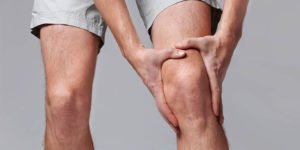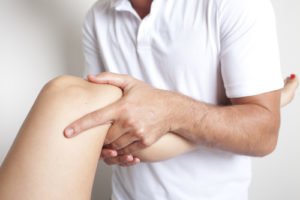As a Osteopath, I often get patients coming in concerned about the funny sounds going on around their knee,
Why does my knee click when I walk?
I’ve been avoiding running recently because my knee clicks
My knees often clicks when squatting
Why do my knees click when going down stairs?
These are often young patients of mine who then stop exercising completely, concerned it’s “wearing out my knee”. Hence, it’s important to differentiate between physiological and pathological noises, to disarm the body from unhelpful or fear avoiding behaviours around movement.
In response to this, I ask my patient if the clicking sounds are painful? Most of the time patients say “No” so then my response is simple, ‘then it shouldn’t be something we’re too concerned about”.
The technical term for the noises you’ll hear in your joint is “crepitus”, which in Latin means “to rattle”. Patients will describe it as a “popping, cracking, grinding, grating or clunking” sound.
So if it’s not “bone to bone grinding”, what’s happening in the knee?
Often the noise occurs from tiny air bubbles ( nitrogen) which accumulate inside the joint fluids. As you move through different positions in the knee, there’s a change in pressure inside the joint which triggers release of this gas or bubbles from the joint, generating that clicking sound. Which is the same process as when you click your knuckles.
Other reasons your knees click.

ITB thick band on the outside of your thigh and knee can flick over the adjacent bony landmarks, creating that sound. If this is painful it can often present as a symptom for another issue.
The hamstring includes a group of 3 muscles on your posterior thigh – two of which semitendinosus and semimembranosus run on the medial side of your thigh. The tendon’s of these muscles can often flick on each other as you straighten or bend your knee – common in activities such as running, going down hill or stairs.
All of these reasons above are often pain free and don’t indicate serious structural damage or predictability of any future problems. If however, the clicking noise is accompanied with pain then we advise getting assessed by your doctor or Osteopath.
In summary, physiological noises are normal and harmless occurrences in the knee – no association with history of injury, no aggravation of symptoms and sporadic nature due to buildup of air in the joint fluid.

Pathological sounds are often associated with swelling, history of trauma, observed consistently on careful examination and often painful. So if you don’t have any of these other symptoms – don’t stress!




